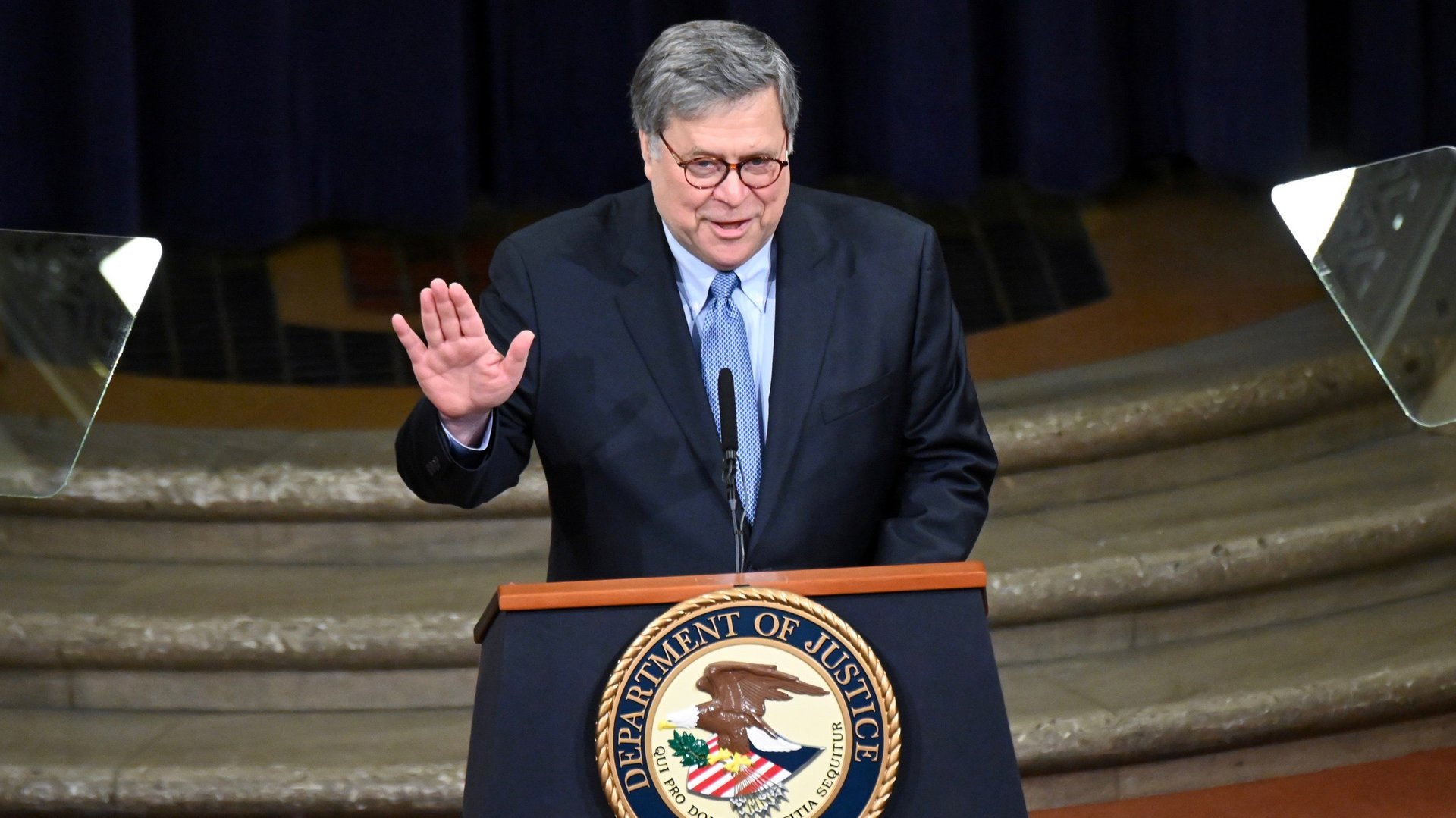The US took its first enforcement action against coronavirus-related fraud
Amid all the other woes brought on by the coronavirus pandemic, there is also the problem of fraudsters trying to profit from people’s fear. The US Department of Justice (DOJ) is urging the American public to report schemes that seem suspicious and outlining steps you can take to protect yourself, many of which apply to internet users worldwide.


Amid all the other woes brought on by the coronavirus pandemic, there is also the problem of fraudsters trying to profit from people’s fear. The US Department of Justice (DOJ) is urging the American public to report schemes that seem suspicious and outlining steps you can take to protect yourself, many of which apply to internet users worldwide.
The DOJ announced Sunday that it had filed its first pandemic-related enforcement action against unnamed operators of the website “coronavirusmedicalkit.com” in Texas federal court. The complaint states that “the defendant is engaging in and facilitating a predatory wire fraud scheme exploiting the current Covid-19 pandemic.”
The site was registered by NameCheap, Inc. and claimed to sell free “vaccine kits” from the World Health Organization for just the cost of shipping, or $4.95. It used a photograph of Anthony Fauci, head of the National Institute of Allergy and Infectious Diseases at the National Institutes of Health, to give the illusion of an official governmental imprimatur (Fauci’s face has become very familiar to Americans in recent weeks as the Trump administration holds increasingly frequent briefings on the pandemic).
The problem, of course, is that there is no coronavirus vaccine, much less a kit available online that could possibly be approved by any legitimate authority anywhere. The goal is to collect money from individuals who don’t know better and, worse, to obtain credit card information that facilitates identity theft.
“At a time when we face such unprecedented challenges with the Covid-19 crisis, Americans are understandably desperate to find solutions to keep their families safe and healthy,” special agent Christopher Combs of the FBI said. “Fraudsters who seek to profit from their fear and uncertainty, by selling bogus vaccines or cures, not only steal limited resources from our communities, they pose an even greater danger by spreading misinformation and creating confusion.”
The fraudulent site is now offline as FBI investigators continue to probe. But this is just one of many such schemes that authorities worldwide are seeing already, the DOJ says. They anticipate more as the pandemic panic rises. There have already been reports of individuals and businesses selling fake cures online, sending phishing emails purporting to be from authoritative entities like the WHO or the US Centers for Disease Control and Prevention, creating malicious websites and apps that appear to share virus-related information to gain and lock access to devices until payment is received, and collections of donations for illegitimate or non-existent charitable organizations.
The best protection may well be taking defensive measures. The DOJ recommends the following:
- Independently verify the identity of any company, charity, or individual contacting you.
- Check websites and email addresses of those offering information, products, or services. Scammers often use addresses that look similar to legitimate entities, for example using “cdc.com” instead of “cdc.gov.”
- Be wary of unsolicited emails offering information, supplies, or treatment, or requesting personal information for medical purposes. “Legitimate health authorities will not contact the general public this way,” the DOJ explains.
- Don’t click on links or open email attachments from unknown or unverified sources to prevent downloading an (electronic) virus.
- Make sure the anti-malware and anti-virus software on your computer is operating and up to date.
- Ignore offers for vaccines, cure, or treatment as health authorities won’t be selling these.
- Check online reviews of any company offering coronavirus-related products or supplies and avoid those with complaints from customers about not receiving items.
- Research any charities or crowdfunding sites soliciting donations.
- Be wary of any business, charity, or individual requesting payments or donations in cash, by wire transfer, gift card, or through the mail. Don’t send money through any of these channels.
- Be cautious of “investment opportunities,” especially those based on claims that a small company’s products or services can help stop the virus.
Be vigilant. As with efforts to contain disease from spreading, an ounce of prevention now may be worth a pound of cure when it comes to coronavirus fraud.